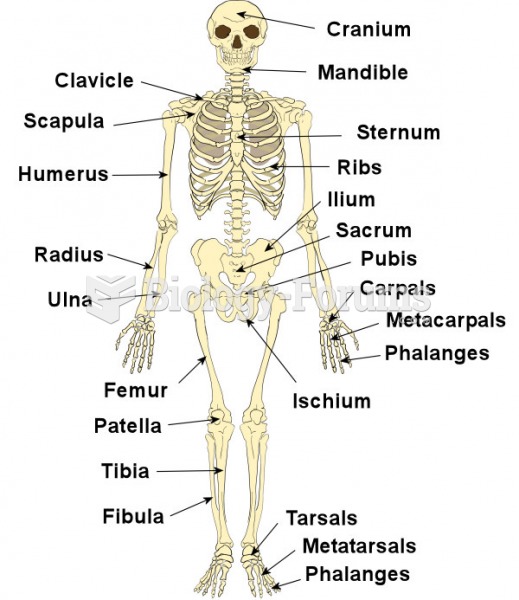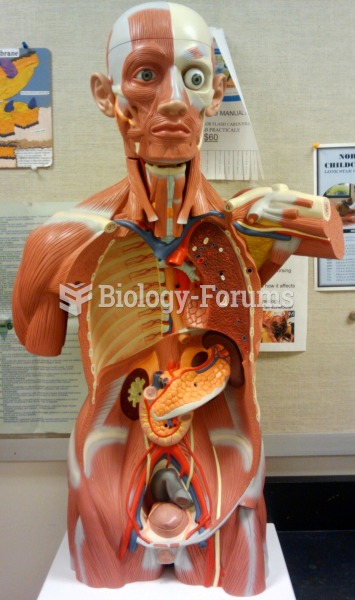This topic contains a solution. Click here to go to the answer
|
|
|
Did you know?
When taking monoamine oxidase inhibitors, people should avoid a variety of foods, which include alcoholic beverages, bean curd, broad (fava) bean pods, cheese, fish, ginseng, protein extracts, meat, sauerkraut, shrimp paste, soups, and yeast.
Did you know?
People about to have surgery must tell their health care providers about all supplements they take.
Did you know?
Thyroid conditions cause a higher risk of fibromyalgia and chronic fatigue syndrome.
Did you know?
Medication errors are more common among seriously ill patients than with those with minor conditions.
Did you know?
The B-complex vitamins and vitamin C are not stored in the body and must be replaced each day.







